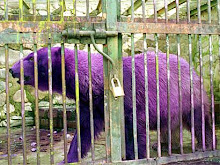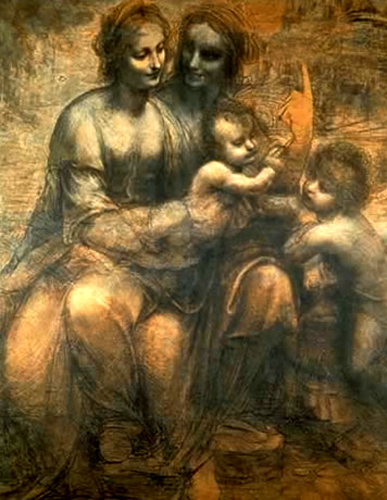The war in Georgia is a victory for Russia. The West’s options are limited, but it needs to pursue them firmly.
ON THE night of August 7th, Mikheil Saakashvili, Georgia’s president, embarked on an ill-judged assault on South Ossetia, one of his country’s two breakaway enclaves. Russian tanks, troops and aircraft poured across the border. Just five days later, after pulverising the Georgian armed forces, Russia announced that it was ending its operations.
This brutal and efficient move (see article) was a victory for Vladimir Putin, Russia’s president-turned-prime-minister, not just over Georgia but also over the West, which has been trying to prise away countries on Russia’s western borders and turn them democratic, market-oriented and friendly. Now that Russia has shown what can happen to those that distance themselves from it, doing so will be harder in future.
Living next to the bear
Russia has made perfunctory attempts to justify the invasion. It claimed that it was defending Russian citizens. This excuse, as Sweden’s foreign minister tartly noted, recalled Hitler’s justifications of Nazi invasions. Anyway, most of the “Russian citizens” in South Ossetia and Abkhazia had been handed their passports fairly recently, presumably in preparation for this foray.
Similarly, Russian attempts to draw analogies with NATO’s bombing of Serbia in 1999 and its encouragement of Kosovo’s independence, or with the American-led invasion of Iraq, do not wash. The latest fighting in South Ossetia may have been triggered by the Georgians, but it was largely engineered by the Russians, who have, over the years, fanned the flames of the conflict. As for the Iraqi parallel, not even the Russians pretend that Mr Saakashvili has ever been a threat to his neighbours and to the world.
This was no sudden response to provocation, but a long-planned move. Mr Putin resents the West’s influence in former Soviet countries such as Georgia and Ukraine, and he dislikes the puckish Mr Saakashvili intensely. He may not yet have ousted him (indeed, ordinary Georgians have rallied to support their president—so far). But by thumping down Russia’s military fist in the Caucasus, he has made clear that Russia will not tolerate excessive signs of independence from its neighbours, including bids to join the NATO alliance.
This new Russian imperialism is bad news for all its neighbours. Mr Saakashvili is an impetuous nationalist who has lately tarnished his democratic credentials. His venture into South Ossetia was foolish and possibly criminal. But, unlike Mr Putin, he has led his country in a broadly democratic direction, curbed corruption and presided over rapid economic growth that has not relied, as Russia’s mostly does, on high oil and gas prices. America’s George Bush was right, if rather slow, to declare on August 11th that it was unacceptable in the 21st century for Russia to have invaded a sovereign neighbouring state and to threaten a democratically elected government.
Yet the hard truth, for Georgians and others, is that pleas for military backing from the West in any confrontation with Russia are unlikely to be heeded. The Americans gave Mr Saakashvili token help when they transported Georgian troops home from Iraq (where 2,000 of them made up the third-largest allied contingent). And they have now sent in humanitarian aid in military aircraft and ships. But nobody is willing to risk a wider war with Russia over its claimed near-abroad. Among Russia’s immediate neighbours, only the Baltic states, which slipped into NATO when Russia was weak, can claim such protection.
That does not mean the West should do nothing in response to Russia’s aggression against Georgia. On the contrary, it still has influence over the Russians, who remain surprisingly sensitive about their international image. That is why Western leaders must make quite clear their outrage over the invasion and continued bombing of Georgia. Few have done that so far; the Italians and Germans in particular have been shamefully silent.
Above all, the West must make plain to Mr Putin that Russia’s invasion of Georgia means an end to business as usual, even if it continues to work with him on issues such as Iran. America has already cancelled some military exercises with Russia. America and the Europeans should ensure that Russia is not let into more international clubs, such as the Paris-based OECD or the World Trade Organisation. Now would also be an appropriate time to strengthen the rich-country G7, which excludes Russia, at the expense of the G8, which includes it.
The European Union, which has too often split into camps of appeasers and tough-talkers over Russia, should drop negotiations on a new partnership and co-operation agreement. Visa restrictions should be tightened, and the personal finances abroad of top Russian officials probed more carefully. The EU should work harder at reducing its dependence on Russian energy imports and improving internal energy connections—and EU countries should stop striking bilateral deals with Russia.
Let them in
In the short term, none of this is likely to deter Russia from reasserting itself in the Caucasus if it feels inclined to do so. Together, though, such measures might give Mr Putin pause before trying anything similar elsewhere—for instance in Crimea, a part of Ukraine that is home not only to many thousands of Russians but also to Russia’s Black Sea fleet. The clearer the West’s displeasure, the better the chances of getting peacekeepers and monitors from other countries into Abkhazia and South Ossetia to replace the Russian troops which have been there as peacekeepers since the early 1990s, but which should leave as they are now clearly occupying forces.
Most importantly, although Mr Saakashvili’s foolishness makes admitting Georgia harder, Russia’s incursion should not delay plans to let Ukraine and Georgia into NATO. Russia’s aggression will make these countries, and others, keener than ever on joining. The worst outcome of this war would be for the West to allow Russia a veto over any sovereign country’s membership of either NATO or the EU.
http://www.economist.com/opinion/displayStory.cfm?Story_ID=11920701
Suscribirse a:
Enviar comentarios (Atom)
Obra

este es uno de mis dibujos
Cofradía que espero que sea grande..... Licenciados Papa Gu
Ideología

Colaboradores
¿ Que nos hace ser como somos?
Cosas que me agradan
- Bersuit
- Blink 182
- Charly García
- Deira
- George Lucas- Star Wars
- Goya- las pinturas negras
- Guns N´Roses
- Klimt- El Beso
- Korn
- La Renga
- Magrite
- Marilyn Manson
- Marques de Sade- Juliette
- Metallica
- Miró
- Nietzsche- Ecce Homo
- Nietzsche- El Crepusculo de los Idolos
- Nietzsche- Más alla del Bien y del Mal
- Nirvana
- Oasis
- Picasso- El guernica
- Placebo
- Rammstein
- Roberto Arlt- Los Siete Locos
- Salvador Dalí- Diario de un Genio
- Sex Pistols
- Sumo
- System of a Down
- The Rolling Stones
- Truman Capote- A Sangre Fría
- Turner
- Van Gogh
- Velvet Revolver
C-Box
Bad Sisters
Sitios de Interés Literario y Sitios dedicados a la arquitectura y los arquitectos
- THEOI GREEK MITHOLOGY
- Liberia Hernandez Argentina
- Frank Minnaret Arquitecto
- Agustina Chavero, escritora
- Letras Libres
- Sitio de Julio Cortazar
- Sociedad Chesterton Argentina
- Casa de Muñecas Ibsen
- James Joyce Centre
- Escritos de Vera talentosa escritora, futuro nobel jejje
- Contextualización de la novela Neuromancer
- Sitio de Hitoshi Abe, Arquitecto Japonés
- Noticias de Arquitectura (Blog)
- Friederich Schinkel, dibujos de planos
- Pagina dedicada a la Arquitectura de la UBA
Oso Polar

Enlaces
- AC DC heavy del bueno
- AC/DC Sitio Oficial
- Agencia de Noticias Tecnologicas y Cientificas de Argentina
- Alberto Morales
- Art For All
- Arte Comtemporaneo de Argentina
- Arte Historia
- Arte Optico
- Arte Universal
- Asociacion en Defensa de los Animales
- Blog de Opiniones sobre Cine e Interés General
- Blog Vegetariano
- Blog: Despierte Ya
- Blog: Tu Ultima Voluntad
- Charif, Gustavo Artista Plastico.
- Computer Graphics Art Society
- Dali Salvador Pagina muy Completa
- Dali, Pagina hecha por Aficionados
- David Bowie que no ye qieapn dudas
- David La Chapelle
- Derrida en Castellano
- Devianart
- Diario Critica para no vivir del culo de las noticias de quien sabe ¿que?
- El almacen del Rock (noticias)
- El Blog del Maestro Peña
- el fotolog de Oliverio
- El Hombre Tiff Blog de Artes Visuales
- Enciclopedia Filosofica On Line
- frases celebres
- Fundación Antoni Tapies
- Galería con Imagenes de Jasper Jhons
- Gaudí y el Modernismo en General desde Arquitectura hasta Musica
- Genio Maligno Libros para bajar
- Gerhard Ritcher, artista alemán
- Giger
- Helmut Newton
- Ilustraciones de Chicas Pin-Up, o en el Anglofono PIn-Up Girls
- Julio Arriaga Pintor
- KORN
- KORN Argentina
- La Radio Metro donde esta el Parquimetro
- Le Modulor Fotolog
- Le Modulor MySpace
- Leedor, Sitio de cultura en General
- Leer Sabato
- Leon Ferrari
- Leornardo Da Vinci Monografía
- Lorenzo Perlonga Ilustrador
- Los Coleccionistas Argentina Trastienda
- Man Ray Catalogo
- Martin Cid escritor encontrado por Causalidad
- mi fotolog, lo cual es una redundancia
- Milo Manara Site
- Miró
- Museo de Andy Wharhol
- Museo Van Gogh
- Myspace Ganeshazine
- Nietzsche en Castellano
- Pagina dedicada a Alemania, cultura, sociedad, etc
- Para Bajar Libros Gratis
- Pin-Up Girls por Howrd David Johnson
- Placebo Otra Pagina +
- Placebo Sitio Oficial
- Poemas del Alma sitio de Poemas y Poetas
- Pure Volume Placebo
- Rammstein una Banda Genial
- Seis Cuerdas
- Sitio de Información y difusión del Anarquismo
- System Of a Down o SOAD
- Tendecia 21 Revista electrónica de ciencia, tecnología, sociedad y cultura
- Tomasso Gravinni
- un blog que hace critica a los discos a los peores eso dice él compruebenlo
- Vanessa Sabeecroft Artista asi como que re loca
- Vito Campanella Sitio Oficial
- Wikipedia, Enciclopedia Libre ayudo a hacerme mas Friki
Cosas Misitcas Esotericas y Extrañas, Religión
Galerías, Museos y Talleres, Artistas, Liberías Artisticas de Argetina, Fabricantes de Pintura
- Capilla del Hombre Guayamín
- Oswaldo Guayasamín- pintor ecuatoriano
- Mi propia Galeria
- The Jewish Museum
- Escher, Sitio oficial
- Museo Roca dedicado a la investigación historica.
- The Times, suplemento de Arte y entretenimiento
- Daniel Santoro el pintor Peronista
- Galaería James Cohan
- Arte 10, decicado al Arte en general
- Asociación de Amigos del Museo Nacional de Bellas Artes
- Instituto Filadelphia
- Estimarte cotizador de Arte
- Ruth Benzacar
- Arte al Día
- Homines Revista de Arte y Cultura
- Revista Sede
- Ramona Revista de Artes Visuales
- Diego Perrotta artista plastico
- Alba Pintura Artista, Fabrica
- Librería Artsitica Thesis
- Casa Museo de Portinari en Portugués
- Francis Picabia
- Tate Gallery, Inglaterra
- Museo Pompidou
- Museo de Orsay
- Museo del Prado
- El Museo Britanico
- Museo Guggenheim
- Taller Juan Herrera Blog
- Juan Herrera Artista Plástico
- Galería Espacio Artemis
Ecología y Defensa Animal, Derechos Humanos
Pintando
















































No hay comentarios:
Publicar un comentario